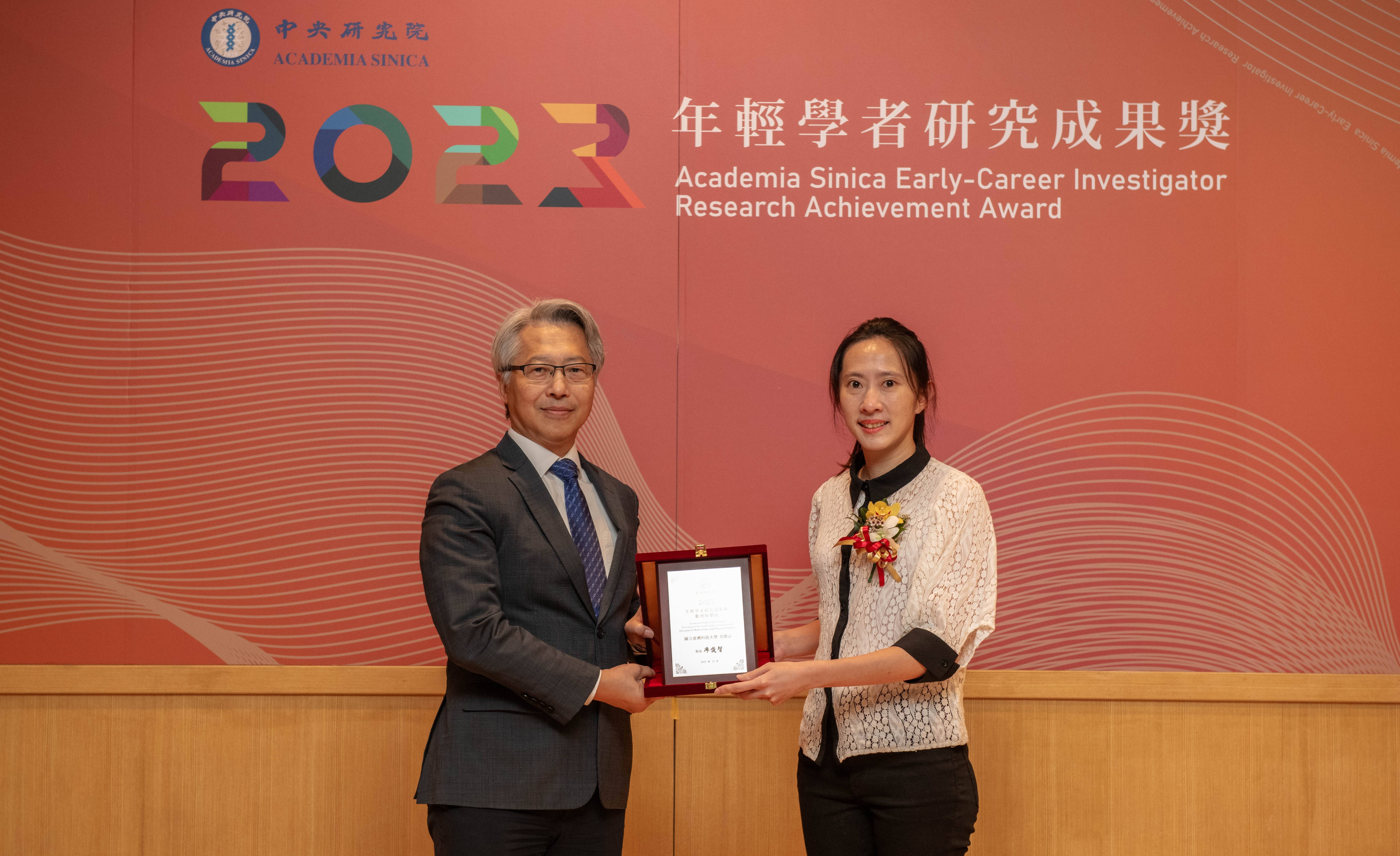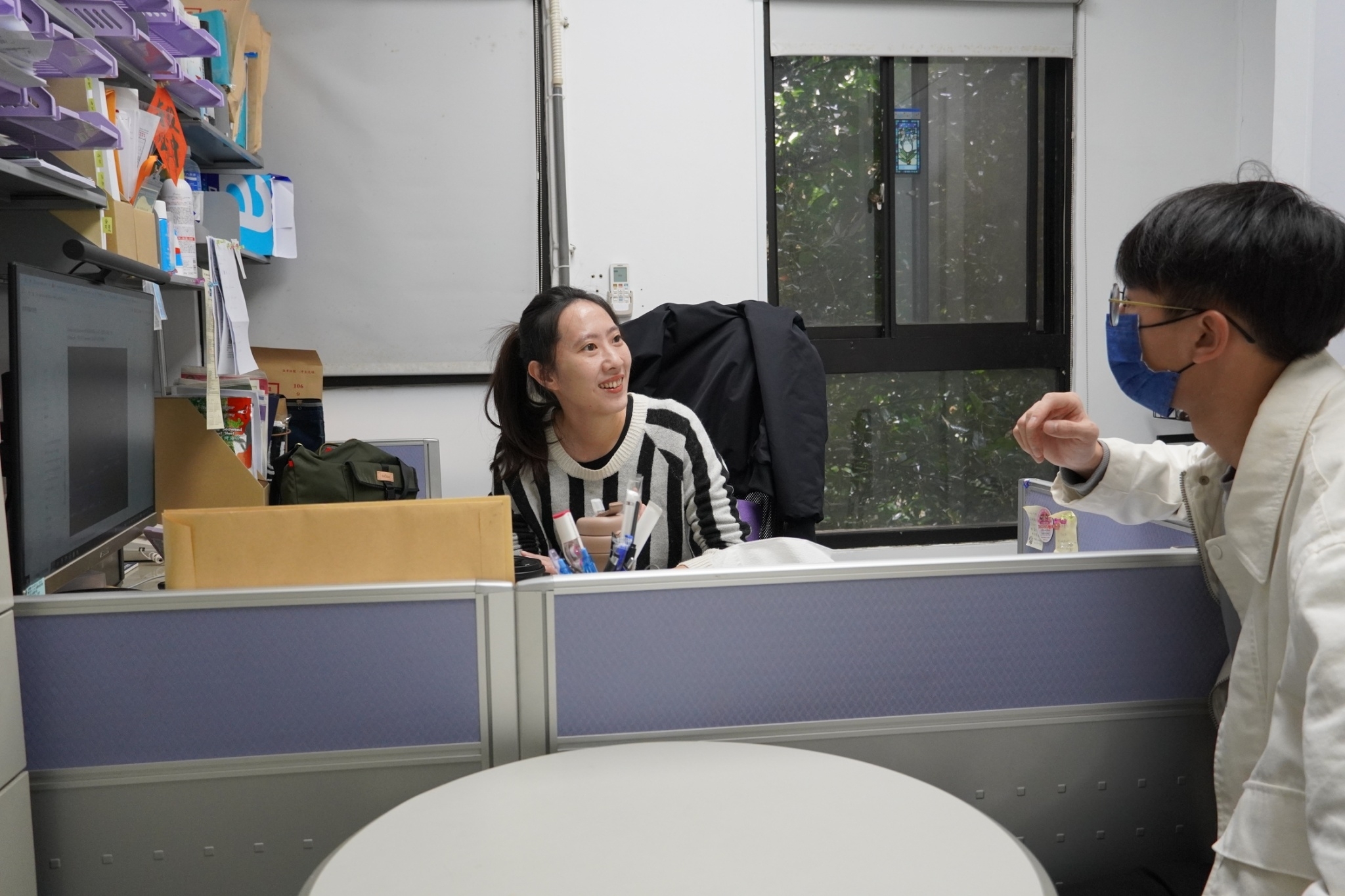Professor Shao-Yun Fang, a young female scholar at Taiwan Tech, excels in research and has pioneered the use of footprint patterns to predict circuit design issues.
Many people's first impression of Professor Shao-Yun Fang from the Department of Electrical Engineering at Taiwan Tech is often her striking appearance, but her outstanding research is not to be underestimated. She was the first to use standard component "footprint patterns" to predict circuit design issues. By employing machine learning models to enhance prediction accuracy, her work can also be applied to optimize the overall circuit design. Moreover, she was awarded the Ta-You Wu Memorial Award in 2020 and received the "Academia Sinica Early-Career Investigator Research Achievement Award" from Academia Sinica last year (112th year of the Republic of China).

Professor Shao-Yun Fang (right) from the Department of Electrical Engineering at Taiwan Tech was honored with the "Academia Sinica Early-Career Investigator Research Achievement Award " from Academia Sinica in 2023.
Explaining her research, Professor Shao-Yun Fang stated that digital circuits are composed of standard components, and metal wires are connected through "footprints”, to connect adjacent standard components. As the complexity of circuits increases, the "footprints" can be blocked by other metal wires, making it difficult to connect smoothly. Currently, many studies utilize machine learning to predict when design issues may arise, and her research found that machine learning models can be used to predict whether problems will occur based on "footprint patterns".
She further explained that using this optimization method can also solve most design issues caused by unconnectable footprints. Her research has already collaborated with the world's largest electronic design automation (EDA) companies, integrating it into electronic design automation software.

Professor Shao-Yun Fang (left) from the Department of Electrical Engineering at Taiwan Tech enjoys teaching. The picture shows that she was discussing a student's (right) thesis.
Shao-Yun Fang expressed that she prefers teaching to research. Due to her love for interacting with people, she chose not to enter the industry. Instead, she pursued a career in teaching at Taiwan Tech since graduating, spanning 11 years. She believes that the most rewarding aspect is not winning the award but witnessing the students' self-breakthrough and improvement bit by bit from knowing nothing at first.
Despite attending prestigious schools such as Taipei First Girls' High School and National Taiwan University, Shao-Yun Fang admitted feeling like a "decorative piece" in the laboratory during her master's studies. She even faced doubts about her professional capabilities from professors. However, through diligent efforts, she eventually gained recognition and progressed to a Ph.D. program. Drawing from her experience, she advises female students in STEM fields to persevere through the first three years of university. During the graduate studies phase, where there are no standard answers, female students often excel, and their theses are often better written than those of male students.
Professor Shao-Yun Fang believes that although holding a teaching position requires the integration of research, teaching, industry-university cooperation, etc., married women, in particular, may need to have multiple roles. However, with efficient time management, everything can proceed smoothly.

Professor Shao-Yun Fang from the Department of Electrical Engineering at Taiwan Tech mainly utilizes footprint patterns to predict circuit design issues in her research.
Professor Shao-Yun Fang was awarded the "Academia Sinica Early-Career Investigator Research Achievement Award" from Academia Sinica in 2023. This award was originally named the "Young Scholar Research Work Award" from 1996 to 2020, and it was renamed the "Young Scholar Research Achievement Award" in 2021. The seven winners were awarded a prize of NT$300,000, research funding of NT$300,000, and a medal.
